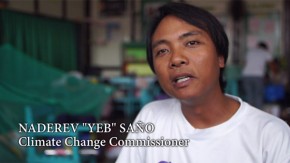Alejandra Torres, Director of International Affairs, Ministry of Environment, Colombia talks about the South American country’s efforts to combat climate change.
She explains that Colombia is extremely vulnerable to climate change: the country is still recovering from the extreme flooding that took place in the country between 2010 and 2012, which affected over 2 million people and had a significant cost on the economy. She says this is just a small example of what will happen if climate change continues.
However, because of such extreme weather events, a significant amount of political support has been given to strengthen an institutional network in the country that brings together several ministries and other entities, like the National Planning Department, who form several committees that are in charge of undertaking national adaptation and mitigation activities and finding sufficient financial resources to enable the country to manage the impacts of climate change.
She adds that although Colombia contributes just 0.3% to the world’s greenhouse gas emissions, the South American country has formulated an ambitious low carbon development strategy.
In addition, the country is active in international fora: it is the chair of an association of independent Latin American countries that seek a progressive and ambitious outcome in Peru and France – including legally binding agreements for all parties. It is also active with the Green Climate Fund (GCF) and the Global Environment Facility (GEF) to push forwards innovative climate change projects and leverage sufficient resources to tackle climate change.










